One thing many new homeowners may be a little surprised to discover is the way their tax bill changes once they buy a home. While the best mortgage lenders will prepare you for changes to your tax situation after signing on the dotted line, it doesn’t hurt to find out ahead of time what to expect.
As a homeowner, you may be able to take advantage of many federal tax deductions that are unavailable to people who rent. And not only can you benefit on your federal income taxes, but possibly your state taxes, too, depending on where you live. For example, someone living in Charlotte with a mortgage might qualify for several tax breaks, depending on their age, income, and veteran status. (In fact, there are several programs worth checking out if you’re working with Charlotte mortgage lenders – be sure to check with your broker as well as your accountant, tax professional, or financial advisor).
Read on to learn about the tax benefits of being a homeowner.
Federal tax breaks
After you’ve bought a home, your tax bill could go down. That’s because you’re now eligible to take additional deductions on your income taxes. According to the Tax Policy Center, there is a greater effect on your tax bill the more money you have, which makes sense: after all, the more you spend, the more you can claim.
You can deduct your mortgage interest
The beauty of taking out a mortgage or home loan is that you can deduct your mortgage interest on the first $750,000 of home debt (if you’re married filing jointly – it’s $350,00 if you’re single).
For example, say you bought a home for $350,000, and your monthly mortgage interest payments are $500. That’s $6,000 in interest paid in one year – and you can deduct it from your taxes. If you took out a $2 million home loan to buy a home, however, you could only claim the interest paid on the first million dollars.
Note that you must itemize your deductions in order to take advantage of this benefit. Many choose to take the Standard Deduction instead, which is still quite sizable – $12,550 for singles and $25,500 for joint filers.
You can deduct your HELOC interest
This tax benefit applies to other kinds of home loans, too. If you have a Home Equity Line of Credit, you can deduct the interest you paid over the year. Again, you must itemize to be able to take advantage of this.
You can deduct your PMI
Check with your mortgage lender: are you required to pay PMI? That stands for Private Mortgage Insurance, and it’s common with home loans with less than 80% loan to value (LTV) ratios.
The good news is that after being eliminated with former President Trump’s Tax Cuts and Jobs Act of 2017, the PMI deduction has been brought back – as long as you itemize your taxes, that is. You also must have an adjusted gross income (AGI) of $100,000 to $109,000 in order to claim this deduction.
You can deduct your property tax payments
Property taxes are important, but they can be a drain on your finances. The federal government will let you deduct your property tax payments up to $10,000 (if filing jointly, or $5,000 for singles). This is true even if you bought and sold a house during the year.
You might even be able to get a jump on next year’s taxes if you pay and claim your property taxes this year. Just make sure you claim them the same year you pay them.
You can exclude some of your capital gains when you sell your home
If you sell your house, there are even additional tax benefits for you – the capital gains exclusion. This means that the government won’t tax the first portion of the money you made off the sale of your home, even if you made a nice profit. If the house was owned by you and lived in by you, the first $500,000 of your capital gains ($250,000 if you’re single) won’t be taxed.
Tax benefits for North Carolina residents
For people looking for a mortgage on a home in Charlotte, there’s even more good news. Charlotte homeowners may qualify for several additional types of tax benefits.
NC Home Advantage Tax Credit
First-time home buyers in North Carolina – including Charlotte mortgage applicants and others – can enjoy tax benefits with the NC Home Advantage Tax Credit. This credit can help you save money on your federal taxes by providing a 30% credit (up to $2,000 a year) every year you own your home.
Veterans are eligible for this tax credit as well. To qualify, you need to apply for and receive a Mortgage Credit Certificate (MCC) when applying for your mortgage. Be sure you and the home you’re considering meet the price and income limits for this credit certificate, and learn more about the requirements at the NCHFA website.
Tax Relief for Eligible Homeowners
Certain North Carolina homeowners may be eligible for tax relief from the state government through a property tax exclusion. This exclusion protects qualified homeowners from property taxes on a portion of their home value
- Elderly or Disabled Property Tax Homestead Exclusion
- Disabled veteran exclusion
- Circuit Breaker Tax Deferment Program
Find out whether you meet the income requirements and other rules by visiting the county assessor’s website for your county of residence. For example, Charlotte residents can check in with the Mecklenburg County website.
Consult a tax professional
Ensure you’re taking advantage of every tax benefit available to homeowners in your area. Consult with a tax professional to go over your options, and prepare to enjoy the advantages that being a homeowner will bring to your bank account! Contact us today to get started!








